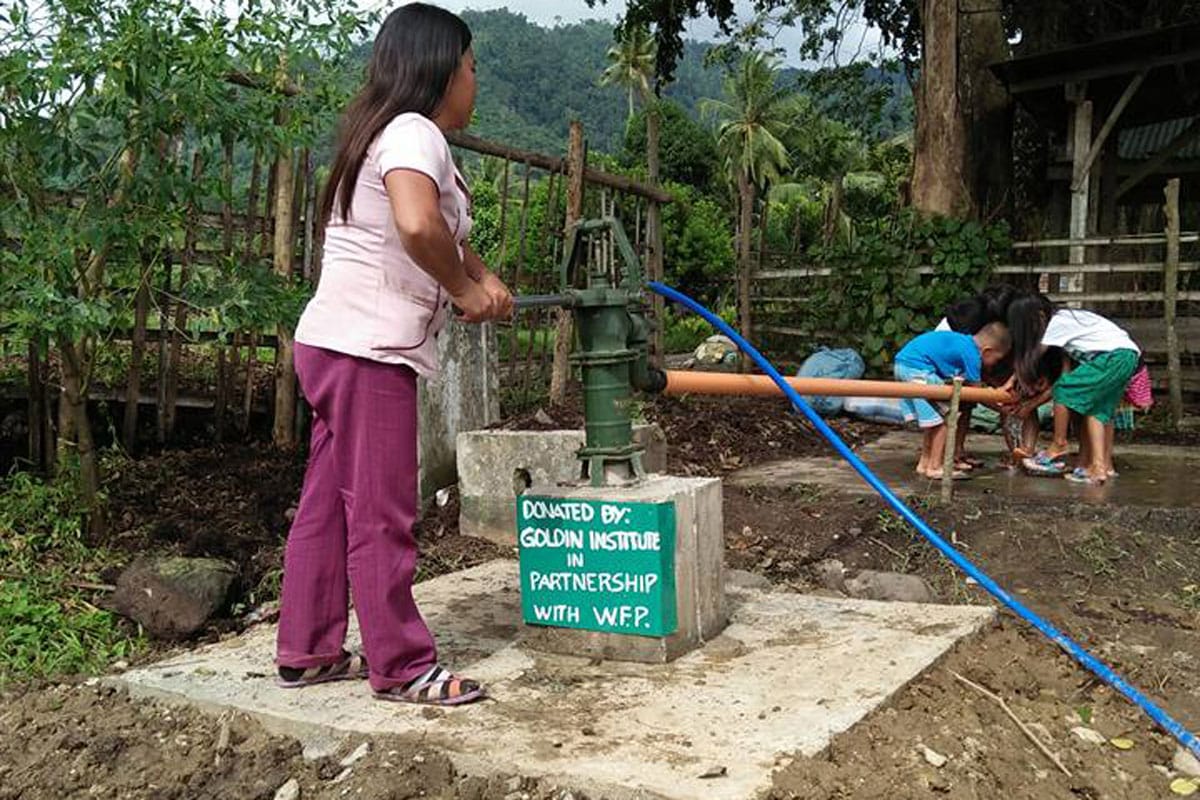Chicago Peace Fellows Update from Dr. Sokoni Karanja

I have enjoyed my first few weeks as a GATHER Peace Fellow. There are many reasons for that statement! One, it provides such an opportunity for place making. By that, I mean our collective action could help define how Peace is achieved in a City so challenged by violence! The second reason is that I have had an opportunity to interview the other fellows:
Maria Velazquez, who is an organizer in Little Village, is a warm and gentle spirit but inside that exterior is a determined heart that shows up every day to take on whatever challenge she encounters. She has taught me about dealing with losing community as you organize. People get tired or get involved in their personal life struggles and must step back from the community effort.

Johnny Payton is about 6 foot 4, maybe taller, but managed to survive and thrive during his early years in the Cabrini-Green public housing development. He is and was an excellent athlete. He managed to walk through every gang in Cabrini and not join. He was of the community but kept his eyes on his goals. He works for the Chicago Park District and has for 22 years. He is committed to the youth of the community, succeeding in all the legitimate ways.
Gloria Smith is the sister to Phil Jackson, who taught my grandson Tai Chi Chuan and was the founder of the Black Star Project. After her brother’s passing, Gloria has come to fill his very large shoes!!! Phil was a bold human being. He picketed the MacArthur Foundation for their injustices to poor black and brown communities and turned around and received grants from them! Gloria and Phil were the niece and nephew of Vincent Harding, an icon of the Civil Rights movement. Just as importantly, Gloria has shared tapes of her uncle’s mentor, Howard Thurman, another icon of the African American community. She is another gentle spirit with a strong heart who is fearless. She works in three organizations, and she loves Bahia, Brazil.

And finally, the staff of GATHER are long suffering. They have endured my lack of understanding of this iPad machine they have told me is mine to keep!! It feels some days like my worst enemy. I am a turtle and they keep encouraging me. I have a space at their office where I practice with my tutors regularly. Thank you for the opportunity and for the many kindnesses.
Warm love,
Sokoni
PS: Our work is suffering from some loss of community!! As we have reduced the violence, created a successful garden, and formed positive relationships with other organizations, some of our participants have begun to step away from regular involvement in our activities. We are now revisiting our base through door-to-door canvassing to rebuild interest and attract new involvement. The garden at 5131 S. Calumet will be the focus of our effort to re-engage the community, and our first meeting around that target was on April 13, 2019, from 10 a.m. to noon.
Philippines Water Project Reaches 40,000 students!
Working within a coalition of members in civil society, non-governmental organizations, the military, armed guerillas and parents, Susana and her team overcame persistent challenges which still remain moving forward.
A joint report released this month from the World Health Organization (WHO) and Unicef shows sobering numbers for safe drinking water access in the Philippines. According to the numbers released, 7.5 million Filipinos are without access to sanitary toilets, while 8.4 million do not have a supply of clean drinking water.
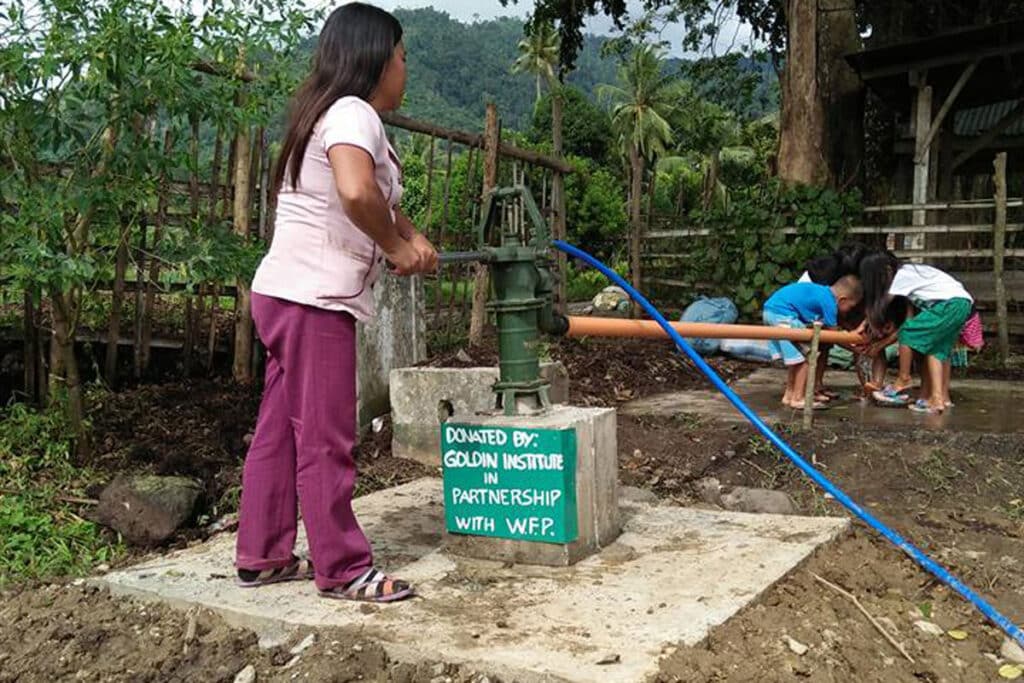
A local insurgency in Marawi City in the neighboring province of Lanao del Sur exploded when foreign fighters affiliated with the so-called Islamic State joined the fight and prompted a massive response from the Philippine Armed Forces this summer, including the imposition of martial law. When the conflict spread to nearby Maguindanao, the military stepped up its activities there as well. The conflict has literally come close to home for Susana on several occasions, as in September, when improvised explosive devices were detonated on a road she uses occasionally, wounding four people. Nevertheless, she has deftly navigated the political, economic and social hazards, collaborating constructively with all sides to provide tangible benefits to communities wracked by warfare and poverty.
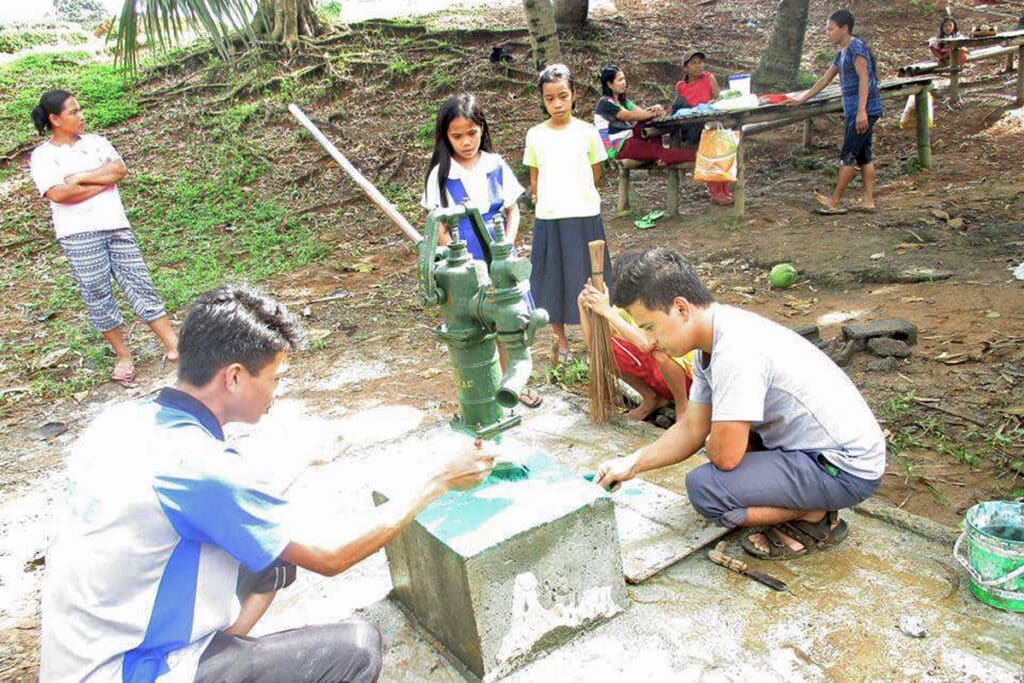
To install the water pumps, Susana works closely with military officials who have the heavy machines they need and with the rebel groups who control the territory where some of the schools are located. The Goldin Institute has been working with Susana since 2011, providing her with financial resources and opportunities to meet with grassroots leaders from around the world. This training enhanced her leadership skills and reputation, and ultimately prepared her to serve as her community’s representative in an ongoing peace process. Late last year, Susana was appointed a commissioner of the 21-member Bangsamoro Transition Commission, which includes members of the Moro Islamic Liberation Front as well as the government and is dedicated to obviating further outbreaks of violence and ultimately establishing stability throughout the region.
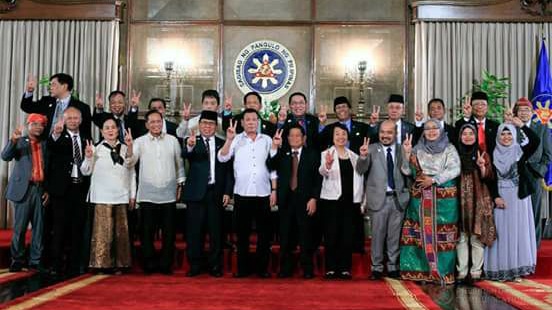
"It is summertime here in our region," Susana explained, "and our students are on vacation through the end of May. We are also dealing with flooding and as well as peace and security challenges. There are military operations happening in the areas we’ve targeted for water pump installation, as the national government is waging war under martial law."
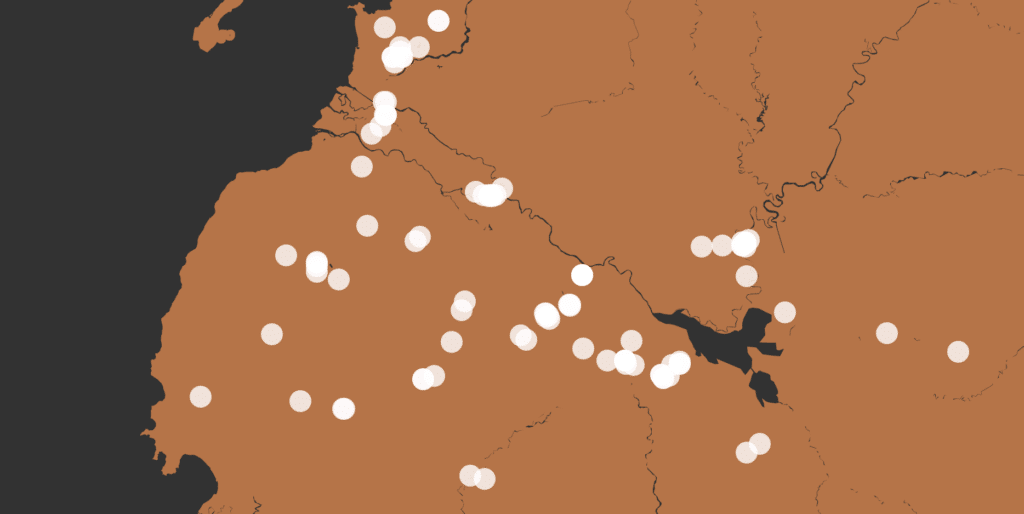
Even amidst these difficulties, progress continues as our partners have recently installed four more units, including one in a community where Muslims and Christians living and working together.
In addition to leading these water pump installation efforts, Susana has been chosen by these communities to be a representative in the national peace process since her appointment late last year as a commissioner of the Bangsamoro Transition Commission.'
This milestone was complemented by another historic moment in the project with the announcement of a $20,000 grant from the Lush Cosmetics Charitable Foundation.
Major Foundation Support for Philippines Water Project

We are pleased to share that the Goldin Institute has received a $20,000 grant from the Lush Cosmetics Charitable Foundation to support our work in the Philippines.
With this grant, the Goldin Institute will be able to expand the safe drinking water project to an additional sixteen schools in Mindanao, estimated to reach more than 3,680 students. To help raise awareness about the Goldin Institute’s work, Lush Cosmetics has also agreed to provide information about the project on their website and on select product packaging.
This support will be a major boost for our work in the Philippines, which recently marked a significant milestone by serving over 40,000 students at 113 schools in Mindanao. As you know, this work is critical in a region where over 70% of the population lives without reliable access to safe water.
The Goldin Institute is proud to parther with the Lush Foundation, a philanthropic leader in supporting grassroots driven social change.
Please join us in thanking the Lush Foundation Charity Pot program for their generous support!
Our Approach

Mission
The Goldin Institute inspires, equips and connects grassroots leaders who help their communities build on their strengths and collaborate to determine their own future.
We help communities achieve their goals through a combination of on-line and on-the-ground initiatives that promote innovative, community-driven partnerships between a wide range of stakeholders and sectors of civil society. We know that real and lasting progress towards a more just, peaceful and sustainable world requires that those closest to the issue, especially often excluded voices with the most at stake in making progress, have leadership roles in any social change movement.
To support community-driven social change, the Goldin Institute built the GATHER platform to support communities of practice who can learn from each other and collaborate across boundaries.
The GATHER Platform helps grassroots leaders and their communities:
- Build on our assets by inviting their neighbors to share their talents and activating our shared community assets. We start with what we have and focus on what’s working rather than what we lack and what’s broken.
- Commit to equity and justice to get at the root of the issues and so that people who are too often left out can take leadership roles in our future. We know that our diversity helps us to see and change the system.
- Enhance both trust and capacity recognizing that our ability to make real and sustainable progress requires us to maintain bonds that keep us going when times are tough. We balance building relationships and taking action.
- Make local and global connections by linking grassroots efforts in our global network, we provide opportunities to adapt creative solutions to local contexts. We connect and equip a global network of grassroots leaders.
Our vision and values enable bottom up strategies that add up to real change:
 Driven by Grassroots Leadership: We build grassroots partnerships that are rooted in the power of communities working together to build their own solutions and determine their own futures.
Driven by Grassroots Leadership: We build grassroots partnerships that are rooted in the power of communities working together to build their own solutions and determine their own futures.
 Power of Community Partnerships: We ensure that the full range of community residents and their partners from all sectors of society are at the forefront of designing and implementing social change efforts.
Power of Community Partnerships: We ensure that the full range of community residents and their partners from all sectors of society are at the forefront of designing and implementing social change efforts.
 Efficient and Effective Organization: We stay nimble and focused by launching and supporting innovative projects around the world and help local communities leverage our resources to scale up proven initiatives through partnerships.
Efficient and Effective Organization: We stay nimble and focused by launching and supporting innovative projects around the world and help local communities leverage our resources to scale up proven initiatives through partnerships.
 Strategic and Organic Growth: Our work is strategic as we utilize our resources to engage critical leverage points and build partnerships as well as organic as it evolves from relationships we develop with grassroots leaders and their communities.
Strategic and Organic Growth: Our work is strategic as we utilize our resources to engage critical leverage points and build partnerships as well as organic as it evolves from relationships we develop with grassroots leaders and their communities.
The Goldin Institute achieves its mission and enacts its priciples through:
Goldin Institute Events
The Goldin Institute works in cooperation with local partners around the world to host international gatherings on issues identified by members of our network. The Institute and our local partners cooperatively invite teams to participate in these global gatherings to focus on challenges related to both the global and regional dimensions of each issue, as well as developing concrete and actionable plans within and across partnering communities.
Research and Consultative Support
The Goldin Institute builds innovative global partnerships to address critical issues and design new tools and strategies on behalf of our international network. Our research services, educational opportunities and consultative support directly serves communities, grassroots organizations, international agencies and the philanthropic sector to implement innovative and sustainable programming. You can review key reports and tools in our resource library.
Goldin Institute Associates
Our projects have convened outstanding grassroots leaders, organizers and activists from around the world who lead the local and regional initiatives of the network. Consistent with our approach in building capacity in communities in which we work rather than in our home office, our staff includes a growing team of Goldin Institute Global Associates. Global Associates serve as "extension staff" and lead the facilitation of Goldin Institute programs in communities around the world.
Global Network
The Goldin Institute's Partner Network is comprised of groups from over 60 cities around the world. This network provides the foundation for the work we do. Our network of leaders, activists, community organizers, government, and NGO staff share our commitment to build grassroot partnerships for global change.
Vision and Values
Our community-driven approach is critical to developing creative and effective grassroots strategies that balance community building and social action. This approach focuses on bringing often neglected perspectives and voices to the table for creative exchanges. By linking grassroots efforts from around the world in our global network, we provide opportunities to build innovative multi-sector relationships and solutions that both adapt to particular local contexts and draw from creative solutions and approaches from around the globe.
Core Principles:
Building Multi-Sector Partnerships
We are committed to facilitating relationships that cut across different sectors of civil society including leadership from government institutions, media outlets, educational institutions, religious communities, activists, business leaders and community partners. Through these relationships, our participants can effectively work to affect social change in systemic ways.
Engaging Communities
The loci of the Institute are local communities. Many of our communities are microcosms of both change and strife that plays out across the globe. Regardless of where they are located, many communities find themselves sharing similar concerns: poverty, HIV/AIDS, community disintegration, inter-group tensions, insufficient infrastructure, corruption, and other critical issues. Our focus on building relationships and community-driven partnerships promotes the cooperative capacity to address challenges that are grounded in the experience and work of participants.
Providing Concrete Tools for Social Change
Often creative initiatives fail due to lack of institutional capacities, organizational development, connections and resources. We are committed to providing tools that can be directly applied within the daily routines of our participants. These tools focus on sharing creative solutions, new approaches, best practices, project facilitation, and effective management.
Focusing on Community Led Change
Dominant perspectives on policy and development tend to emphasize large-scale and quantitative approaches to understanding and surmounting social problems. While recognizing the value of such approaches, we create a space for qualitative individual and community-based perspectives. By focusing on methodologies that emphasize cooperative approaches to assessment, development, and policy initiatives, we promote a perspective that sees individuals and communities as active partners in defining and achieving a just and sustainable future.
Our Background
The Goldin Institute was founded by Diane Goldin and Travis Rejman in 2002 as a forum to bring together engaged grassroots leaders to form a global network for conflict resolution, poverty alleviation and environmental sustainability. You can learn more about the history of the Goldin Institute by visiting our timeline.
Annual Events
Each year we work in cooperation with a partner city to host an international gathering on issues critical to peace and sustainability. The Goldin Institute and the partner city cooperatively invite teams to participate in a week-long conference focusing on challenges related to both the global and regional dimensions, as well as developing concrete and actionable plans.
Breaking the Cycle of Violence for Child Soldiers, Cartagena, Colombia, 2007
Held in association with the Centro Mundial in Colombia, this event convened a global forum on the theme of Reintegration and Prevention: breaking the cycle of violence for ex-combatants and vulnerable youth. The forum served as a catalyst to launch a new national platform in Colombia to engage the social, civic and public sectors throughout the country in reintegrating former combatants and preventing the recruitment and use of child soldiers. View Event
Promoting Reconciliation in the Midst of Conflict, Amritsar, India, 2005
Teams focused on building trust, understanding and cooperation in high-conflict areas through innovative reconciliation efforts. Through our partnership with the Guru Nanak Nishkam Sewak Jatha and associated organizations throughout the Punjab areas in India and Pakistan, participants had the opportunity to learn from local effort towards reconciliation throughout the week. View Event
Providing Access to Safe Drinking Water, Taipei, Taiwan, 2004
Teams focused on understanding and addressing the global water crisis. Commitments to launch or enhance creative projects and initiatives engaging leaders from multiple sectors (Religion, Business, Education, Media, Science, the Arts, etc.) were made and are now being created or enhanced in cities around the world. View Event
Building Social Cohesion amidst Diversity and Migration, Manresa, Spain, 2003
Teams of grassroots leaders and activists explored the theme of building social cohesion in the midst of diversity, learning from each other and the nascent but growing movement to welcome immigrant communities in Manresa, Catalonia and Spain. View Event
Forming a Global Partner Cities Network, Chicago, USA 2002
Participants learned from the experience of Chicago's grassroots leaders and worked together to build a platform for shared learning and support through a Network of Partner Cities. View Event
